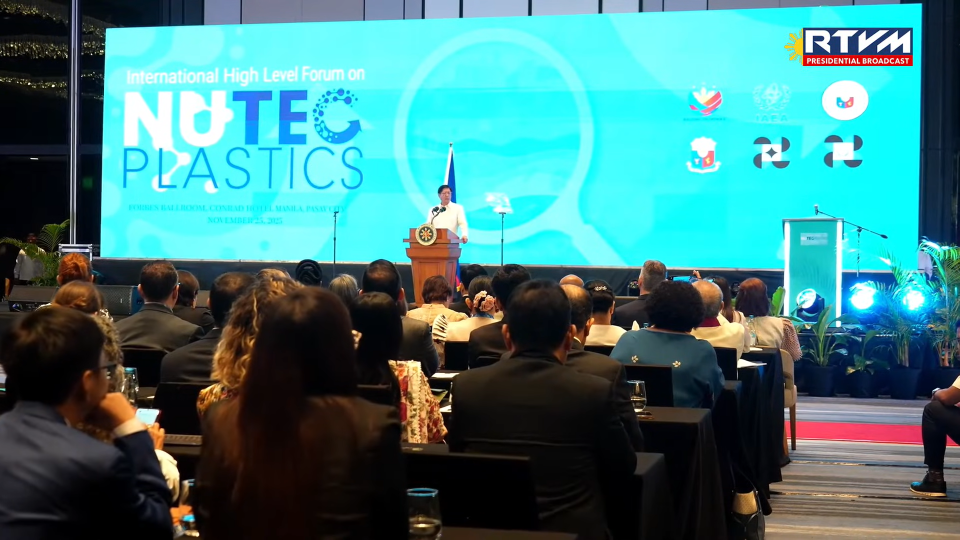
By Dean Aubrey Caratiquet
As countries around the world continue to grapple with the omnipresent impacts of plastic pollution, the Philippines continues to spearhead its partners on the international stage in the quest to resolve this dilemma at the grassroots level.
In the opening ceremony of the IAEA International High-Level Forum on NUclear TEChnology for Controlling Plastic Pollution (NUTEC Plastics) on Tuesday, President Ferdinand R. Marcos Jr. welcomed this initiative as a breakthrough in the fight against this pressing global concern.
“NUTEC Plastic embodies a kind of innovation that we need—solutions that merge advanced nuclear applications with environmental protection, to translate scientific progress into tangible benefits for industry and for society.”
Marcos delved deeper into the discussion by citing the fruits of the country’s cooperation with the International Atomic Energy Agency (IAEA), which manifests in the Post-radiation Reactive Extrusion of Plastic Waste Project (PREX), a prototype house that demonstrates that potential of a future circular economy and the marine microplastics monitoring laboratory established in partnership with the University of the Philippines, which enables real-time monitoring of microplastic pollution and contributes to a better understanding of this worrying phenomenon.
Earlier, the President signed Republic Act No. 12305 (Philippine Nuclear Law), which he hailed as a comprehensive regulatory framework that will facilitate responsible usage of nuclear technology in its various peaceful applications on domestic shores.
Marcos expounded, citing the country’s upcoming chairship of Association of Southeast Asian Nations (ASEAN) 2026, “NUTEC Plastics is a model for how ASEAN can collaborate on science-based solutions on trans-boundary problems. The world is undergoing a technological shift as consequential as the industrial revolution. “
He concluded in his remarks, “The leaders of this century must not only adopt new technologies, but they must also ensure that these technologies are aligned with human well-being, with ethical standards, with environmental integrity, and with sustainable growth.”
NUTEC Plastics is a flagship initiative of the IAEA, with 99 countries participating in tracking marine microplastics and 52 involved in developing innovative recycling technologies.
Consistent with the United Nations’ Sustainable Development Goal No. 14 (Life Under Water), the Philippines is one of the few countries in the roster that has a laboratory for collecting microplastic samples and serves as a beta tester in the reutilization and recycling of polymeric waste through radiation modification.
jpv
